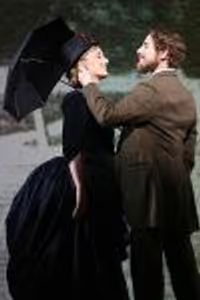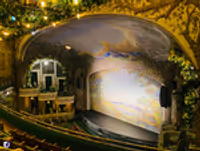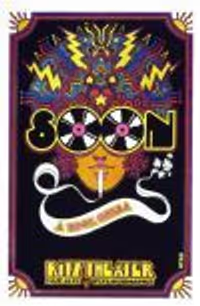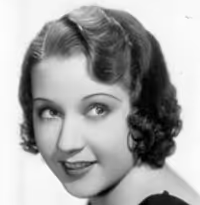Studio Recordings vs. Live Recordings
Joshua Rosenthal
Stand-by Joined: 8/13/17
#1Studio Recordings vs. Live Recordings
Posted: 10/9/20 at 11:50amWhich do you prefer and why? This can be in general it on a show-by-show basis (I.e. Dreamgirls Broadway Studio cast recording vs West End live recording)
#2Studio Recordings vs. Live Recordings
Posted: 10/9/20 at 11:58amGenerally I prefer a studio recording but it can be fun to have a live recording of shows that already have studio recordings. The quality of live recordings tends to vary greatly. The On Your Feet cast album has some serious flaws, especially during the dialogue moments. There is lots of stage noise and distracting volume levels between dialogue and song. The live cast album of the recent Miss Saigon revival often sounds as good as a studio album to me if it were not for the applause at the end of songs. I don't understand the technology enough to understand how one can sound so poor and the other so flawless but it was something I was able to observe. I am looking forward to the upcoming Mary Poppins revival cast album which I believe is another live cast album from the West End.
#3Studio Recordings vs. Live Recordings
Posted: 10/9/20 at 12:00pm
I much prefer studio albums to live albums.
I think the decline in quality with live albums, while not inevitable, is extremely common.
I can definitely understand why some people don't like it to be polished, because it can feel like a more authentic, human listening experience, closer to what you get when you're actually sitting in the theatre. I totally get that. But as someone who is lucky enough to see most major musicals live for myself, I like to have the opportunity to hear the score in its crispest, clearest, most perfectly mixed form. When listening to a studio album, I can understand the lyrics better, and I can hear more of the nuances in the orchestrations and vocal arrangements. And I just find it easier to become absorbed in a studio album than a live album, but again, I can totally see how someone might feel the reverse.
chrishuyen
Broadway Legend Joined: 11/12/14
#4Studio Recordings vs. Live Recordings
Posted: 10/9/20 at 12:19pm
It definitely depends what I'm listening to and whether I want just one song or I'm listening to the whole album to re-experience the show, and part of that also depends on how much dialogue studio albums prefer to put in vs how much acting is done on the album. For example, in Phantom of the Opera, when Christine sings Think of Me, she's supposed to start out timid and then become more confident, but if I just wanted to listen to that song alone, I'd rather just hear her sing the song as an aria rather than being in that moment of the show.
I also second what people have said about the audio quality of live albums as well, but I do appreciate that sometimes you get a little more than the usual songs (again this depends on how much the studio album chooses to include). I rather enjoy the 2010 Les Mis tour cast album because it's the most "complete" version of Les Mis with new arrangements (and the two leads are great), so you'll hear things that are often cut from other albums (like the Master of the House intro). I think it would be cool to have live albums as well for shows like Six, where it's such a different environment listening to each song as a "single" as opposed to the concert setting of the show.
ScottyDoesn'tKnow2
Broadway Legend Joined: 1/22/14
#5Studio Recordings vs. Live Recordings
Posted: 10/9/20 at 12:31pmSpeaking of Dreamgirls, we still don't really have a full studio recording of that score. It wasn't until I heard the live benefit concert album where I realized that the musical was almost fully sung and how many songs were truncated or cut from the original Broadway cast recording.
#6Studio Recordings vs. Live Recordings
Posted: 10/9/20 at 3:28pmThere's also a new Les Miserables live album out next month from the 2019 staged concert at the Gielgud Theatre. I knew the blu-ray was coming, but I didn't realize there would be an album as well.
#7Studio Recordings vs. Live Recordings
Posted: 10/9/20 at 3:53pm
I prefer studio recordings over the live ones. To be honest, the only live albums I really care for are ones that either include all the scenes or dialogue, or there is something unique about the casting...(the Dreamgirls concert checks off both those boxes for me).
#8Studio Recordings vs. Live Recordings
Posted: 10/10/20 at 2:07am
In addttion to the issues of sound already mentioned, there is the concern of shaping the recorded performance to communicate for the ear alone what is conveyed on stage visually. Goddard Lieberson at Columbia records was a master at this. He would adjust tempos to create more aural excitement or expand on an emotional moment.
He also knew how to judiciously edit a song to make it a single stand-alone number for the record. A live recording does not allow for that type of manipulation. Also, some dialogue needs to be re-configured to include important plot points.
For me I prefer to hear the songs without applause and cheers overtaking at the end or even sometimes in the middle of a number.
The talk about the DREAMGIRLS recordings reminds me what a huge let-down the original LP release was. It arrived a few weeks after I saw the show in March 1982. What I heard on the album had the drama and power of the show eliminated because the record producer had no concept of how to make the material work on records. The Film Soundtrack and concert cast recordings preserve most of the score but without the dynamic original performers.
Cast albums are NOT "soundtracks."
Live theatre does not use a "soundtrack." If it did, it wouldn't be live theatre!
I host a weekly one-hour radio program featuring cast album selections as well as songs by cabaret, jazz and theatre artists. The program, FRONT ROW CENTRE is heard Sundays 9 to 10 am and also Saturdays from 8 to 9 am (eastern times) on www.proudfm.com
TrChSpHa
Understudy Joined: 7/15/09
#9Studio Recordings vs. Live Recordings
Posted: 10/10/20 at 11:21amJoshua Rosenthal said: "Which do you prefer and why? This can be in general it on a show-by-show basis (I.e. Dreamgirls Broadway Studio cast recording vs West End live recording)"
One example for me is there's something I love more about the musical arrangements in "Road to Hell" from the live NYTW Hadestown album than the orchestrations on the Broadway cast recording. I don't think the studio version really captures how incredible the trombone player really sounds in that opening.
#10Studio Recordings vs. Live Recordings
Posted: 10/10/20 at 9:39pmalmost always studio. however there are some live recordings i love: Hadestown, Follies in Concert, Chess in Concert, Dreamgirls in Concert. the first two in specific i prefer to the “original” studio recording (Hadestown came later but it’s worse)
Ravenclaw
Leading Actor Joined: 9/16/17
#11Studio Recordings vs. Live Recordings
Posted: 10/11/20 at 1:23am
Lately, a lot of the newer studio recordings just sound a little dead and lifeless to me. These days, when everyone is in a separate booth, often playing and singing to a click track, with pitch correction and perfectly balanced mixing, there's often an energy missing from the raw live recordings where everyone is much more connected in the music making. Last year's Oklahoma album was a disappointment to me--what sounded thrilling in the theatre felt a little too clean on the album. In the theatre, that show had gorgeous acoustics, which I suspect all the plywood had something to do with. I wondered if a live recording would have been better able to capture the energy of the performance. Then again, I'm no sound recording expert, and after years and years of watching and listening to bootlegs, my threshold for sound quality is probably much lower than the average person's.
#12Studio Recordings vs. Live Recordings
Posted: 10/11/20 at 1:04pm
I'll take a bootleg over a live recording, and sometimes over a poor studio recording. I'd be curious to know more about the forces behind modern studio recordings, which are typically dry as a bone both musically and dramatically. Part of this is probably just how producers want albums to sound now, possibly with consideration of how people are actually listening to music.
I used to have almost all of Sondheim's OBC recordings on vinyl record, and when played on my stereo the effect was thrilling because the producer, Thomas Z Shepard, is incredibly good at creating space for the music. Compare the finale of Someone in a Tree from the original Broadway album and the 2005 revival album. In the former, it's like this wonderful, textured wave of sound, which is partially thanks to the bigger orchestration but also the space and reverberation actually given to the voices. In the revival album, it's almost the exact opposite, every voice in a crisp box, never really merging even when they're all put together, which has the weird effect of making it feel both less intimate and less grand.
There's also the way that modern vocal performances, particularly in choral moments, lean towards a scrubbed glee club style, which contributes to a lack of blending. As Ravenclaw mentioned, the Oklahoma! revival album sounded very, very clean. In the theatre, the big choral burst at the beginning was exactly that, a burst, a communal voice, but on the album it sounds more like a timid barbershop quartet. It's a very frustrating trend.
#13Studio Recordings vs. Live Recordings
Posted: 10/11/20 at 2:02pm
I think there's something to be said for a case-by-case approach to this question, and it's interesting to me that a lot of the examples of bad studio albums are for revivals. Now that I think about it, I would actually agree a lot of the most boring studio albums these days are for revivals. Rarely do I feel compelled to listen to a modern revival cast recording over an original, and I say that as someone who (a) is not a purist at all and (b) generally prefers a cleaner sound when listening to albums. I think Charlie Kringas' assessment is spot on, in that regard.
But I would venture to say that the crisper, modern style of recording is better-suited to newer scores, which makes sense. Especially because we've been moving more and more toward smaller, chamber-style musicals, as well as musicals with more pop-inspired scores. For the smaller, chamber shows, the clean sound can heighten the intimacy of the recording, and also showcase the more intricate orchestrations (as opposed to more grand, sweeping orchestrations). And obviously the pop-inspired scores are well-suited to the modern style of recording, for obvious reasons.
Of course, it's still a matter of opinion, and I'm guessing many probably feel the same way about all modern cast albums, not just revivals.
#14Studio Recordings vs. Live Recordings
Posted: 10/11/20 at 2:03pm
I find most modern cast albums sound very compressed - there's this prevailing attitude that loudness is most important, so the signal is squashed to the point where there's no dynamic contrast. I agree that modern cast albums have a tendency to sound lifeless and over-processed in a way that older albums don't. Part of it is the reduced orchestras and extra synths, some of it is modern technique which is not always my favorite thing in the world, and also now that studios are smaller they're often using less good microphones and equipment. And mixing is an art, and mastering as well. I thought the "Dr. Zhivago" album actually sounded better than most, though I have no desire to actually listen to the score. So it can be done but more often than not it isn't.
#15Studio Recordings vs. Live Recordings
Posted: 10/11/20 at 3:09pmThe recent Broadway cast albums of Cinderella, She Loves Me and On the Town were all studio albums and they sounded exceptional to my ear.
#16Studio Recordings vs. Live Recordings
Posted: 10/11/20 at 6:00pmChamber-style productions have certainly benefited in many ways, that’s true! The Fun Home cast recording is terrific, and I think they did a really good job with the Falsettos revival. I still crave a bit more plushness in the actual recording, but it’s a better use of the techniques than something like Tootsie, which took the jubilant energy of the live production and squished it into a cast album with all the vitality of a stale oyster cracker.
#17Studio Recordings vs. Live Recordings
Posted: 10/12/20 at 4:13pm
Love Charlie Kringas's post on Thomas Z. Shepard, and he's 100% correct. I've never cared for the revival Sondheim recordings, and that's much of the reason why. What's interesting is to compare the studio-recorded Paper Mill Playhouse Follies--complete, and conducted by Jonathan Tunick, no less--with Shepard's live Follies in Concert. Somehow, with the latter, we feel we are in that crumbling ruin of a theater. I'm not sure how he accomplished it. The ghosts--without any reverb or anything added--sound like ghosts. It's amazing. The Paper Mill sounds sterile. No tension, no sense of atmosphere.
#18Studio Recordings vs. Live Recordings
Posted: 10/14/20 at 11:38am
I can't imagine a better representation of the show than Movin' Out's live cast recording. I think it captures the energy of the live music and dance. (I do miss the show's prologue, though.)
Two successful live recordings came out this past season: American Utopia and Octet. I think the sound quality of both is really great. American Utopia captures the feel of an inclusive, bolt-of-energy theatrical concert experience. Octet displays the incredible skill of the cast, and the flaws make the rest of the recording super impressive.
#19Studio Recordings vs. Live Recordings
Posted: 10/14/20 at 12:49pm
Octet is definitely among the best live albums I've ever heard, in terms of pure technical quality. When I first started listening to it, I had absolutely no idea that it wasn't a studio recording. There are definitely times where it becomes obvious later on, but most of it is pristine.
Videos









